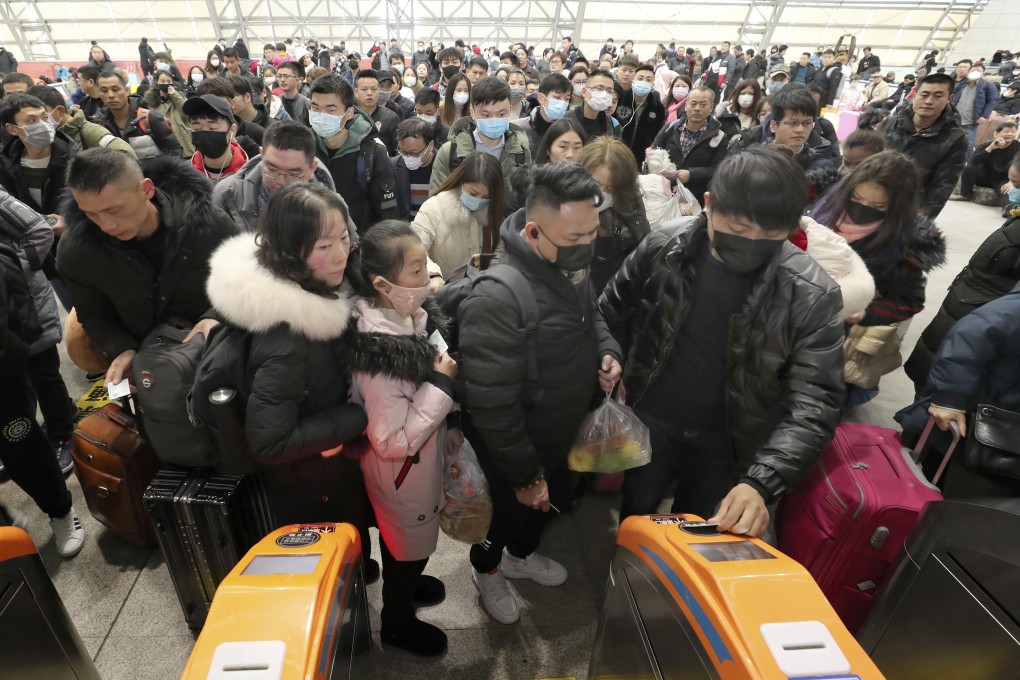China coronavirus: Travellers cancel Lunar New Year trips as illness spreads globally
- Official measures have been stepped up to ensure safe travel for the public during the biggest human migration of the year
- Public awareness of virus growing in importance, though some complain that seniors resist taking precautions

After much thought, Chen Mi, a 31-year-old Shanghai data analyst, finally decided to cancel her train ticket back home to Wuhan, Hubei province, the epicentre of the coronavirus outbreak.
Chen had been following the virus’ progression since December, but never thought things would get so bad that she would have to cancel her trip home for the Lunar New Year holiday.
This week, however, Chen’s mother urged her not to come home. A local doctor friend told her the situation was becoming increasingly worrisome amid limited public awareness about the outbreak.
“My grandfather is 80 years old. If we had brought the virus home, young people might be quarantined for a bit, but it would be deadly for the elderly,” Chen said. “My mother was like a transportation director; she used that reason to convince my aunt and uncle not to come home also.”
As of Thursday morning, China has confirmed 17 deaths and 571 infections from the virus, with a few cases overseas. On Tuesday, the US Centres for Disease Control and protection confirmed that the first known case of Wuhan coronavirus had been identified in the United States.